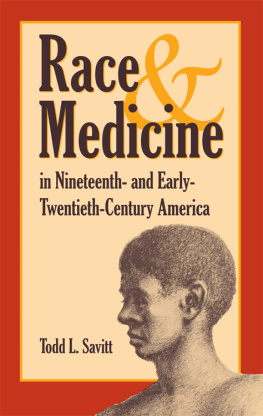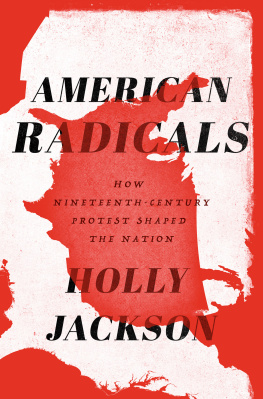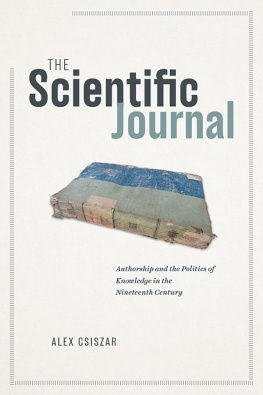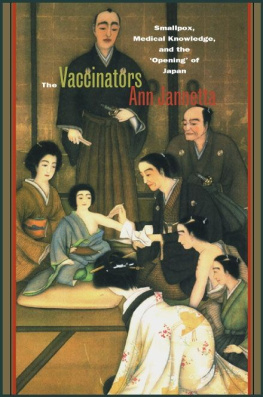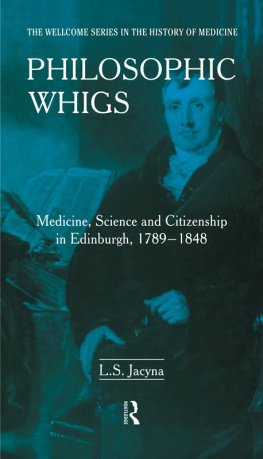
SOCIAL HISTORIES OF MEDICINE
Series editors: David Cantor and Keir Waddington
Social Histories of Medicine is concerned with all aspects of health, illness and medicine, from prehistory to the present, in every part of the world. The series covers the circumstances that promote health or illness, the ways in which people experience and explain such conditions, and what, practically, they do about them. Practitioners of all approaches to health and healing come within its scope, as do their ideas, beliefs, and practices, and the social, economic and cultural contexts in which they operate. Methodologically, the series welcomes relevant studies in social, economic, cultural and intellectual history, as well as approaches derived from other disciplines in the arts, sciences, social sciences and humanities. The series is a collaboration between Manchester University Press and the Society for the Social History of Medicine.
Previously published
The metamorphosis of autism: A history of child development in Britain BonnieEvans
Payment and philanthropy in British healthcare, 191848 GeorgeCampbell Gosling
The politics of vaccination: A global history Edited by ChristineHolmberg,StuartBlumeandPaulGreenough
Leprosy and colonialism: Suriname under Dutch rule, 17501950 StephenSnelders
Medical misadventure in an age of professionalization, 17801890 AlannahTomkins
Conserving health in early modern culture: Bodies and environments in Italy and England Edited by SandraCavalloandTessaStorey
Migrant architects of the NHS: South Asian doctors and the reinvention of British general practice (1940s1980s) Julian M.Simpson
Mediterranean quarantines, 17501914: Space, identity and power Edited by JohnChircopandFranciscoJavier Martinez
Sickness, medical welfare and the English poor, 17501834 StevenKing
Medical societies and scientific culture in nineteenth-century Belgium
Joris Vandendriessche
Manchester University Press
Copyright Joris Vandendriessche 2018
The right of Joris Vandendriessche to be identified as the author of this work has been asserted by him in accordance with the Copyright, Designs and Patents Act 1988.
Published by Manchester University Press
Altrincham Street, Manchester M1 7JA
www.manchesteruniversitypress.co.uk
British Library Cataloguing-in-Publication Data
A catalogue record for this book is available from the British Library
ISBN978 1 5261 3320 5hardback
First published 2018
The publisher has no responsibility for the persistence or accuracy of URLs for any external or third-party internet websites referred to in this book, and does not guarantee that any content on such websites is, or will remain, accurate or appropriate.
Typeset
by Toppan Best-set Premedia Limited
My interest in the history of medical sociability goes back a long way. I first came across the subject in the medical history seminars and master's courses I followed at the universities of Leuven and Minnesota between 2008 and 2010 the latter training only made possible by a generous fellowship of the Belgian American Educational Foundation. In those years, the idea took shape to study nineteenth-century medical societies as spaces of scientific practice rather than as professional organizations. Thanks to a doctoral fellowship of the Flanders Research Foundation (20102014), I was able to put this idea into practice and start a research project titled Scientific Medicine in the City: The Scientific Practices and Urban Embeddedness of Medical Societies in Belgium, 18301914. A postdoctoral fellowship of the Special Research Funds of the University of Leuven (2015) allowed me to conduct additional research (e.g. on the networks and publishing practices of these societies).
I was given the opportunity to present this research at many venues in Belgium, the Netherlands and elsewhere. My work has benefited enormously from the comments I received at these meetings and my gratitude goes out to all those who took an interest in my work. Two people merit a special word of thanks. Kaat Wils has encouraged me to pursue my research from the very start. She proved a dedicated supervisor of my doctoral research. My conversations with her have shaped my understanding of nineteenth-century science and medicine, and she has been a meticulous reader of all the chapters in this book. Frank Huisman's sharp analytical comments, conceptual advice and apt literature suggestions kept me on track. I also thank him for enabling me to spend several months at the Descartes Centre for the History and Philosophy of the Sciences in Utrecht, a visit during which I benefited from the advice of Wijnand Mijnhardt and Bert Theunissen. Several collegueas have taken a special interest in my work by commenting on chapters at different stages. I am grateful in particular to Michael Brown, Raf De Bont, Josephine Hoegaerts, Matthias Meirlaen, Evert Peeters, Jo Tollebeek, Jacob Steere-Williams, Truus Van Bosstraeten, Geert Vanpaemel and Karel Velle. It is difficult to overestimate the impact of their help. Without a doubt, many of the concepts I have used in this book to analyze how science was practiced in medical societies are the product of my conversations with them. Upon reading this book, I hope they will find their advice reflected in the way I have paid attention to performance, to (unwritten) codes of conduct, to the construction of expertise or to the mechanisms of commemoration in nineteenth-century scientific sociability.
The Cultural History since 1750 Research Group at the University of Leuven proved a stimulating context for my research. Studying medical history amidst cultural historians who are working on topics such as the history of universities, museums, shopping or historical culture an exchange stimulated by monthly seminars to discuss work in progress proved a constant reminder of the social and cultural milieu in which physicians were embedded. If I originally studied the urban nature of medical societies in terms of geography and the presence of scientific infrastructure in the city, such as libraries and universities, I came to understand inspired by this shared tradition of cultural history this urban embeddedness of medical societies much more in terms of physicians participation in an urban-based civil society. These insights allowed me to open up my research and make links with contemporary political and historical culture. They are the product not only of formal seminars, but also of many informal chats in the office or over lunch and during several leisure trips to museums, for which I want to thank Bram Van Nieuwenhuyze, Liesbet Nys and Elwin Hofman, among many other colleagues from the Leuven History Department. A parallel project on the history of anatomy in Belgium enabled me to discuss my findings with experts in medical history on an almost daily basis. While these exchanges have left their traces throughout the book, this is particularly the case for the chapter on networks and collections, in which I explore how anatomists used societies to gather specimens. I therefore want to thank Veronique Deblon, Tinne Claes, Jolien Gijbels, Pieter Huistra and Sokhieng Au in particular. As my research advanced, a certain


